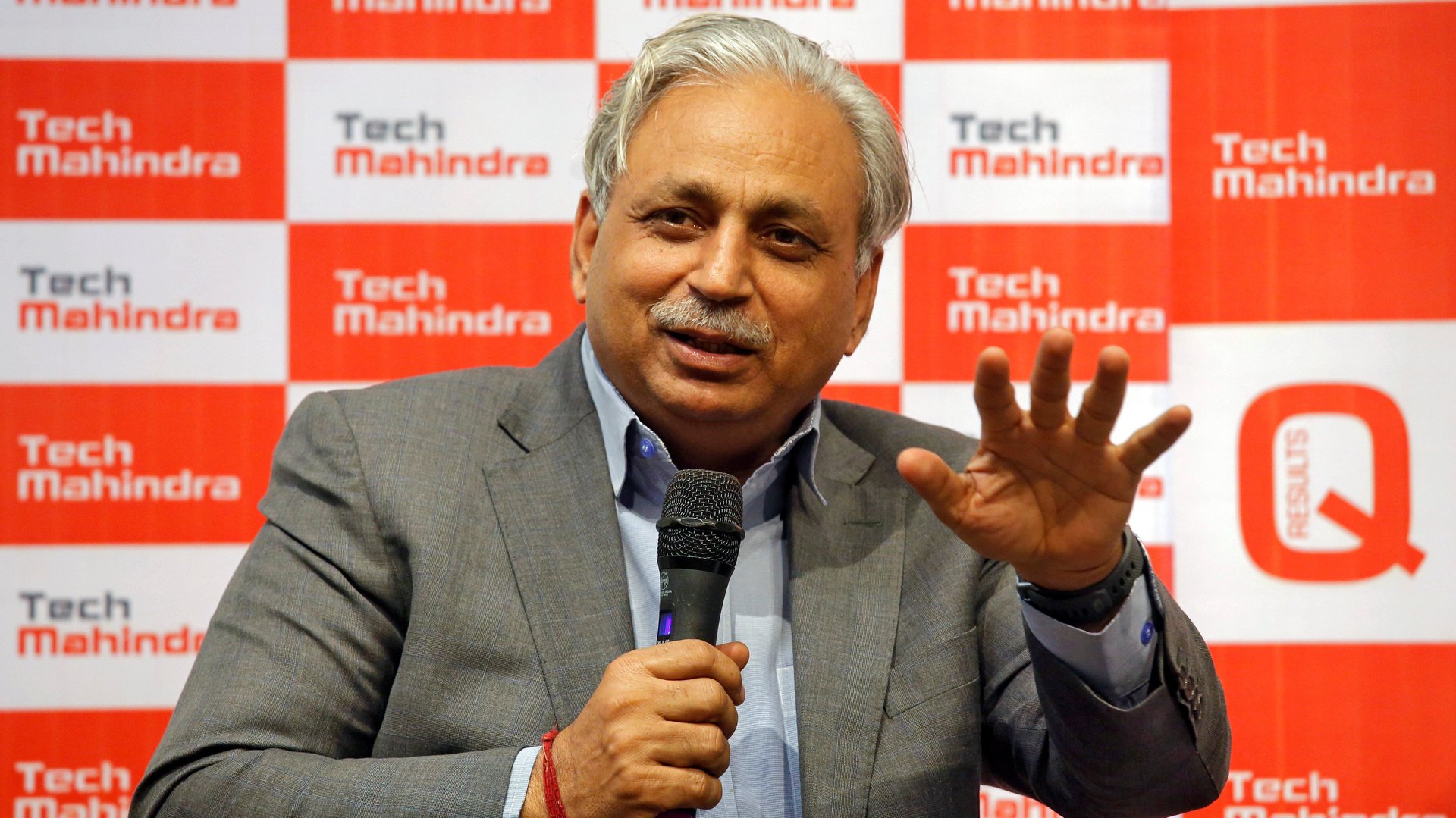An Indian IT veteran’s tips for corporate leaders to survive the pandemic
The Covid-19 outbreak has tested economies across the globe. As the situation continues to evolve, the global business community has pressed the reboot button to restart businesses in all industries and geographies. Since the pandemic has given rise to unprecedented economic challenges and changed the way we live and work, business leaders must realign their strategies to achieve targets in the short-, medium- and long-term.


The Covid-19 outbreak has tested economies across the globe. As the situation continues to evolve, the global business community has pressed the reboot button to restart businesses in all industries and geographies. Since the pandemic has given rise to unprecedented economic challenges and changed the way we live and work, business leaders must realign their strategies to achieve targets in the short-, medium- and long-term.
Here are some of the broader changes I have observed and how I feel they should be dealt with:
Be a wartime general
To overcome this crisis, business leaders will have to fundamentally change from being peace-time leaders to becoming war-time generals.
During a war, generals do not have the luxury of time, and so they need to think fast and act faster.
The current situation calls for leaders to be focused and yet open to revisiting strategies, to take bold risks, to judiciously deploy their resources, and above all, to work tirelessly till the war is won.
Being resilient, dynamic, focused, frugal, and agile are the demands of the war where nothing can be predicted. What worked yesterday may not work today, and leaders must be prepared for that.
Rebooting for solutions
Though the situation is still volatile, new systems and developments to combat the impact of the pandemic have resulted in realigning management principles, operational procedures, delivery methods, and timelines. Employee trust and confidence-building are crucial.
We need to look at this crisis as an opportunity to ascertain new standards, protocols, and methods. This means that each industry will either have to set its own new benchmarks or follow the norms set by others.
For instance, in the IT industry, technologies such as artificial intelligence, machine-to-machine, and 5G will unleash fresh business opportunities, create new jobs, and bring substantial socio-economic benefits. These new technologies will increase productivity, improve service delivery, and optimise the use of scarce resources. But as we embrace these technologies, it is essential to preserve the institutional value and culture of an organisation in order to keep people together and make this transformation more comfortable.
It is a time for introspection, too.
Learning never ends
Currently, several countries are facing grave economic challenges as production and sales have come to a grinding halt.
But the pandemic has also paved the way for a new world order, which includes changing trade relations, environmental concerns, and financial stability.
This changing global order has given an advantage to India, and we need to move fast in this direction with direct support for health sectors and direct fiscal stimulus packages.
In the post-pandemic phase, the IT and healthcare sectors have the potential to revive the Indian economy.
I am reminded of the Y2K bug (also known as the “Millennium bug”), which led to formatting and storage issues because computers were unable to differentiate between the years 1900 and 2000. The challenge and the way Indian IT companies helped overcome it, played a vital role in establishing India’s tech prowess globally.
Not just a role model, but also modelling the change
In times of crisis, I believe, we naturally draw strength from our role models.
For me, my parents have been my role models. People often ask what is most important for me, and I say humility and hard work, which is what I have learnt from my parents.
My father decided to join the Central Bureau of Narcotics, a central government agency in India, where he was transferred to many cities. I ended up studying in over six schools during the first 11 years of my education. That experience made me curious and resilient. It has played a big role in the person I am today. I also learnt from my parents’ ability to deal with change. They taught me to manage with fewer resources, to explore every option, to demand the best, and to gently extract the best from people.
These learnings are more relevant today than ever before.
In the post-Covid-19 world, we may witness new role models, from many different and maybe even conflicting disciplines such as doctors, scientists, health workers, technology developers, YouTubers, and so on. The key is in constantly challenging accepted ideas and beliefs, and to adapt to one’s situation accordingly.
Welcome to the new normal
We have to accept that the post-pandemic world will not be the same as before. What will help us win this war is our ability to seize this new normal and define it for ourselves.
There is a story that has always stuck with me and seems appropriate to share in these trying times:
A little girl is on a flight and there is a lot of turbulence. She sits bravely while the rest of the passengers are terrified. When asked why she wasn’t scared, she answered, “My dad is the pilot, and he is taking me home.”
It is pertinent to ask: Are we the leaders who our teams can trust to take them home safely? Do we command that level of faith in our teams?
I hope the answer to these questions is are a resounding yes.